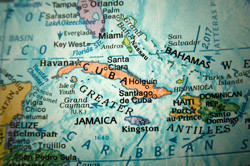Intersecting biopolitics and postcolonial literature
Since the 1960s, major Caribbean writers have written about violence and issues such as genocide, slavery, colonialism and dictatorships. In tandem, new forms of biopolitics have arisen and formed a direction for life through language, imagination and myth. Since biopolitics examines the link between life, origin and history, it holds immense potential for literary theory. As a result of this theoretical intersection, innovative methodological criteria can be established and applied in literary analysis. In order to enrich the critical debate on postcolonial Caribbean literature, the CARIBIOLIT project introduced issues raised by the reflection on biopolitics that had until now been ignored by postcolonial critics. More specifically, the project connected French and Italian theoretical reflections to the primarily Anglophone field of postcolonial studies. Over the course of two years, the work involved training and outreach activities, and texts were analysed in English, French and Italian. Journal articles on race, violence and biopolitics were produced, as were a series of thematically linked articles within African, American, Caribbean and European contexts. Results can serve as tools for political and cultural specialists in future research on European-Caribbean relations and as a reaffirmation of biopolitics.




